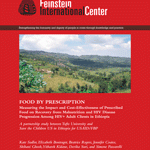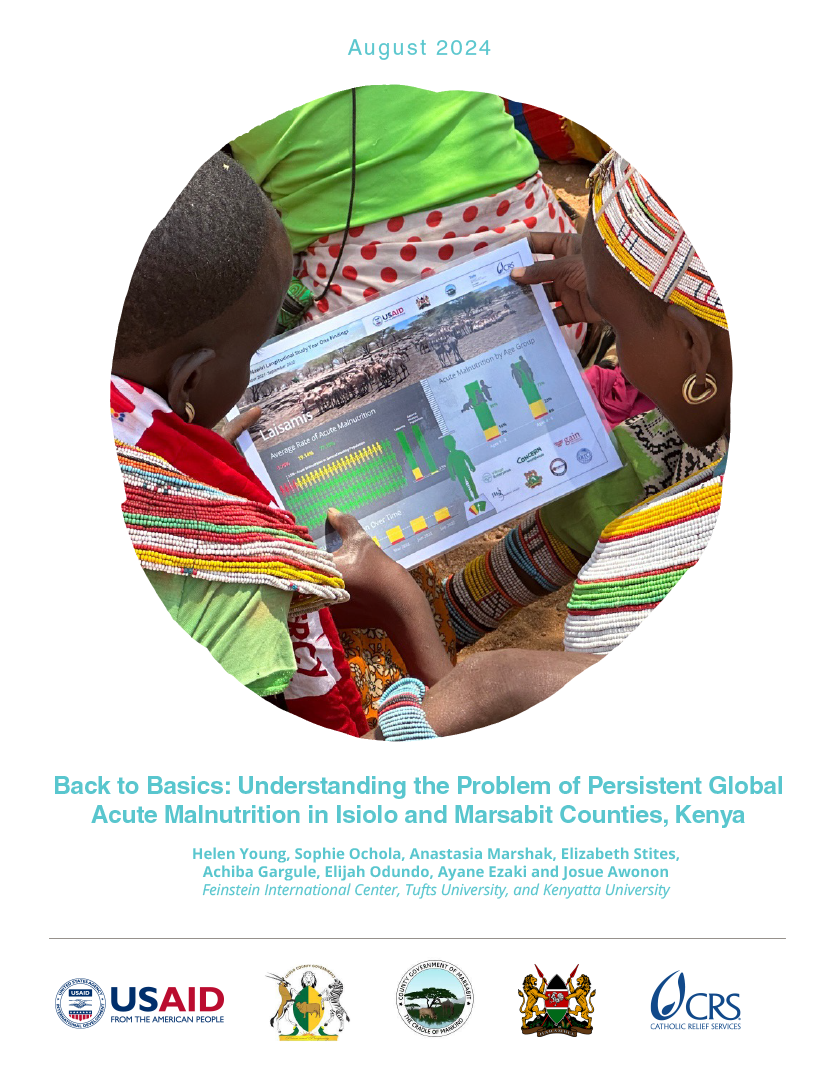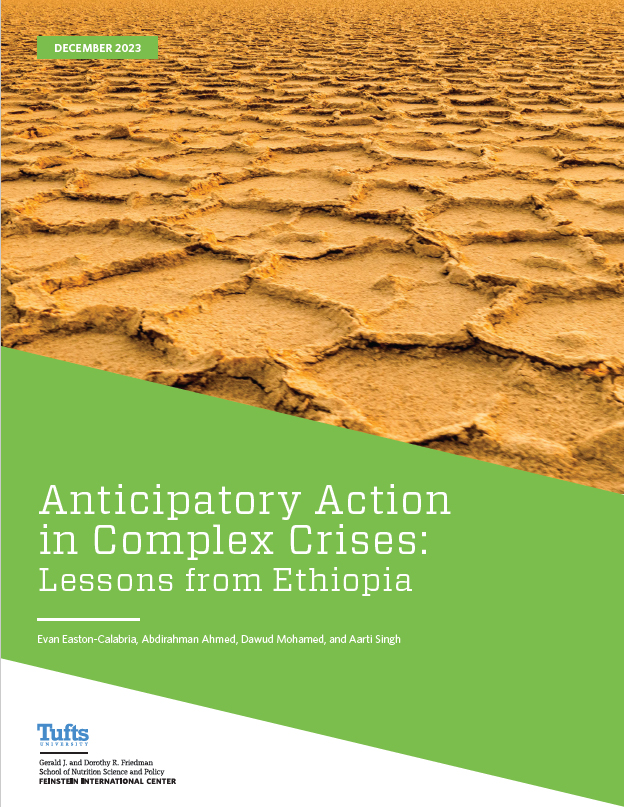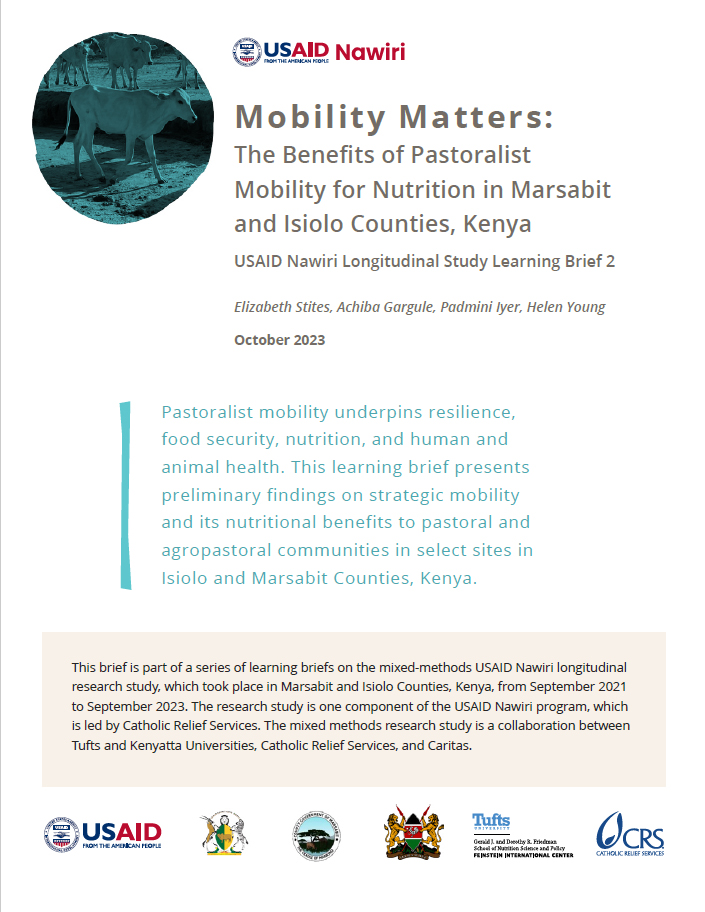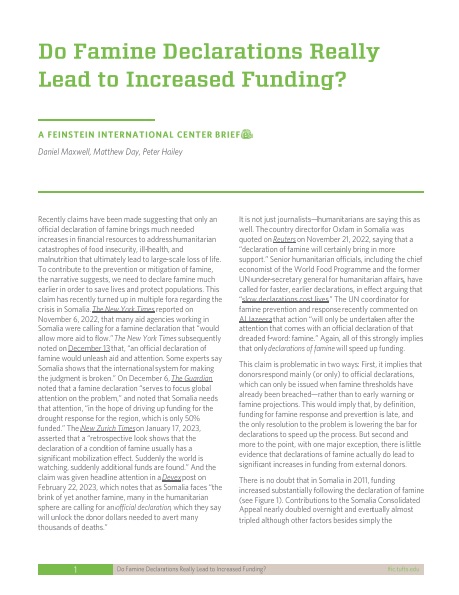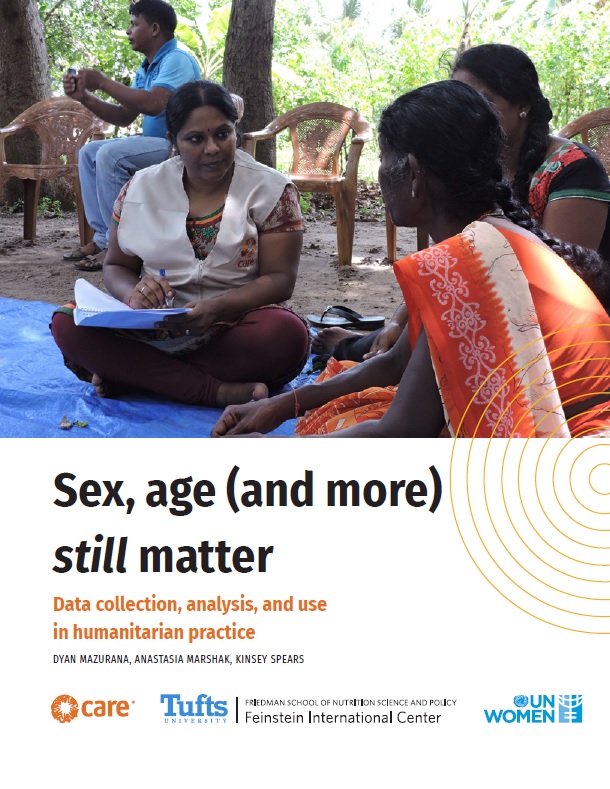Great strides have been made over the last 20 years in the long-term management of HIV infection in developing countries, resulting in improved immune function, reduced mortality, and prolonged survival. However, underlying malnutrition continues to impede positive health outcomes, and HIV infection in turn worsens malnutrition. The Ethiopia Food by Prescription (FBP) program, implemented by Save the Children US (SC US), USAID/Ethiopia, and the Ethiopian Ministry of Health since 2010, provides therapeutic food along with nutritional assessment and counseling to malnourished HIV+ individuals. The Tufts University Friedman School of Nutrition Science and Policy was contracted by SC US to research the effectiveness and cost-effectiveness of this intervention, in order to contribute much needed evidence to guide programming and policy, both in Ethiopia and worldwide.
Patients who received food were significantly more likely to recover from malnutrition than those who did not receive food, and treatment with supplementary food was much more successful, and more cost-effective, when malnourished individuals were identified and treated early. Additionally, patients who recovered through the addition of supplementary food experienced long-lasting positive effects on their health and nutrition status. While the marginal cost per patient recovered in the FBP program was high, the marginal cost of improving nutritional status by at least one BMI point was much lower—an important finding considering the link between weight loss and increased risk of mortality. In addition, our hypothetical costing models show that a focus on improving supply (health service delivery) and demand (client adherence, participation, compliance) would further strengthen the effectiveness and cost effectiveness of this strategy, and this study makes several recommendations as to how this might be done. In light of these results, the authors recommend that nutritional assessment counseling and support remains an integral component of ART programs in Ethiopia. The current (2008) version of the National Nutrition Program in Ethiopia supports the implementation of nutrition support for pre-ART/ART HIV/AIDS patients, and this should remain a priority in the 2012/13 version being developed by the Ministry of Health now.

